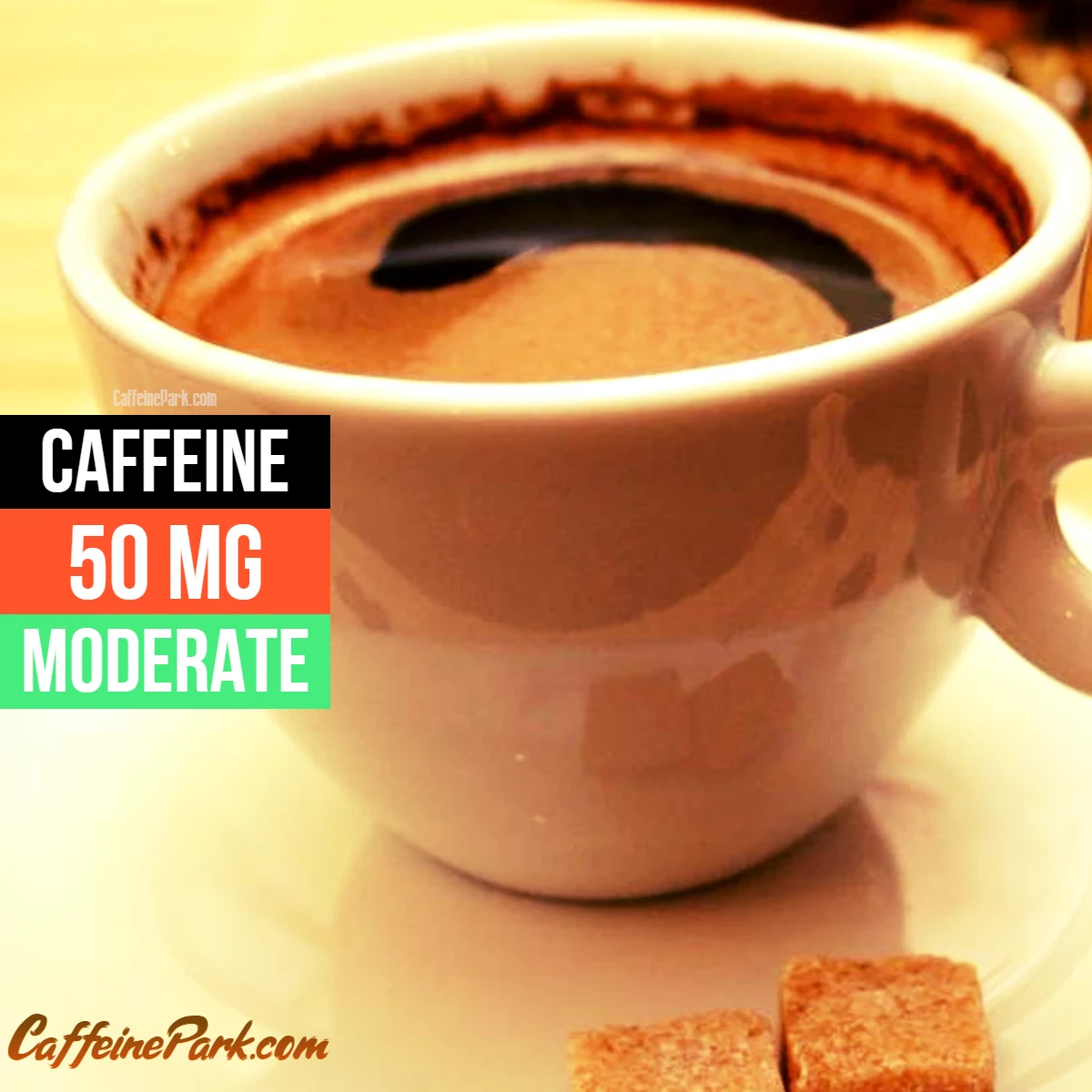Greek Coffee Caffeine Content

Greek Coffee, also known as “Metrios,” is a traditional and popular beverage in Greece and the surrounding regions. It is made using a unique method that involves adding a heaping teaspoon of finely ground Greek coffee, one teaspoon of sugar, and 1/4 cup of water to a broken pot. The mixture is then heated until the foam rises to the top, just before it boils. The coffee is then poured into a cup and served.
One of the interesting things about Greek Coffee is that its caffeine content can vary between 40-60 mg per serving. This is due to a number of factors, including the type of beans used, the grind of the coffee, and the brewing method.
It’s worth noting that there is another version of Greek coffee called “Vary Glykos,” which uses twice the amount of coffee as the Metrios version. This means that the Vary Glykos version would have double the caffeine content of the Metrios version.
Additionally, there is another version of Greek coffee called “Sweet Boiled Coffee” which is boiled three times. This version is known as “glykivrastos” and would have a slightly higher caffeine content than the Metrios version, ranging between 60-80 mg per serving.
In terms of serving size, Greek Coffee (Metrios) contains 50 mg of caffeine per 2 fl oz cup (84.54 mg per 100 ml) and 25 mg of caffeine per fl oz.
Overall, Greek Coffee offers a unique and flavorful experience and is a cultural staple in Greece and surrounding regions. Whether you’re looking for a little pick-me-up or just want to try something new, Greek Coffee is definitely worth a try.
Does Greek Coffee have caffeine?
Yes, Greek Coffee contains 50mg of caffeine per 2 fl oz cup and 25mg of caffeine per fl oz (84.54mg per 100ml).
| Serving size | Caffeine Amount | Caffeine strength |
|---|---|---|
| 1 fl oz cup (29 ml) | 25 mg | LOW |
| 2 fl oz cup (59 ml) | 50 mg | MODERATE |
| 100 ml | 84.5 mg | MODERATE |
How Much Caffeine is in Greek Coffee?
- Caffeine Amount: 50 mg
- Caffeine strength: MODERATE
- Calories: 25
- Serving size: 2 fl oz cup
- Sugar: 5 g
Ingredients in Greek Coffee (Metrios)
- Finely Ground Greek Coffee
- Water
Compare caffeine in Greek Coffee Vs. other Coffee
| Items | Serving Size | Caffeine |
|---|---|---|
| Greek Coffee | 2 fl oz | 50mg |
| Caffe Nero Coffee | 12 fl oz | 160mg |
| Caribou Brewed Coffee | 16 fl oz | 305mg |
| McDonalds Coffee | 16 fl oz | 145mg |
| Chick-fil-A Brewed Coffee | 10 fl oz | 136mg |
| Peet’s Brewed Coffee | 16 fl oz | 267mg |
| Tim Hortons Large Brewed Coffee | 20 fl oz | 270mg |
| Turkish Coffee | 2 fl oz | 50mg |
| Nescafe Gold | 8.46 fl oz | 66mg |
| Maxwell House Coffee | 8 fl oz | 112mg |
Review
Greek Coffee (Metrios) is a traditional and popular beverage in Greece and the surrounding regions. It is made using a unique method that involves adding a heaping teaspoon of finely ground Greek coffee, one teaspoon of sugar, and 1/4 cup of water to a briki pot. The mixture is then heated until the foam rises to the top, just before it boils. The coffee is then poured into a cup and served.
History
Greek Coffee has a long and rich history that dates back centuries. It is believed to have originated in the Middle East and was brought to Greece by the Ottoman Turks during their occupation of the country. The traditional method of brewing Greek Coffee involves using a small pot called a “briki” and a stovetop heat source. This method is still used today, and it is considered an important part of Greek culture.
Taste and Flavor
Greek Coffee (Metrios) has a unique and distinct taste and flavor that sets it apart from other types of coffee. The coffee beans used to make Greek Coffee are typically grown in the mountains of Greece, and are known for their strong and robust flavor. The coffee is ground very finely, which gives it a strong and rich taste.
One of the key characteristics of Greek Coffee (Metrios) is its strong, bold flavor. The coffee is brewed with a small amount of sugar, which helps to balance out the bitterness of the coffee. The result is a smooth and well-rounded flavor that is both rich and satisfying. The coffee has a thick, creamy texture and a slight sweetness.
Another aspect that contributes to the taste and flavor of Greek Coffee (Metrios) is the brewing method. The coffee is made using a briki pot, which is a traditional Greek coffee pot. This method of brewing allows the coffee to slowly infuse with the water, resulting in a rich and flavorful coffee.
Overall, Greek Coffee (Metrios) has a unique and complex flavor profile that is sure to please coffee enthusiasts. It is a strong and robust coffee that is perfect for those who enjoy a bold and rich taste. It is also a great choice for those who are looking for a unique and traditional coffee experience.
Ingredients and Nutrition
Greek Coffee is made with simple and natural ingredients. The main ingredient is finely ground Greek coffee, which is typically a blend of Arabica and Robusta beans. The coffee is also mixed with sugar and water. Greek coffee is considered low in calories and sugar and It doesn’t contain any fat.
Benefits
Greek Coffee has several potential health benefits, including:
- It contains caffeine, which can help to improve focus and concentration.
- It is low in calories and sugar, making it a great choice for those who are trying to watch their weight.
- It contains antioxidants, which can help to protect the body from damage caused by free radicals.
Side Effects
Like any other type of coffee, Greek Coffee can cause certain side effects if consumed in large amounts. Some of the most common side effects include:
- Insomnia: Greek Coffee contains caffeine, which can make it difficult to fall asleep if consumed too close to bedtime.
- Stomach upset: Consuming too much coffee can cause stomach discomfort, such as bloating or acid reflux.
- Headaches: Overconsumption of caffeine can lead to headaches.
Price and Availability
Greek Coffee is widely available in Greece and the surrounding regions. It can be found in most coffee shops and cafes, as well as in grocery stores. The price of Greek Coffee varies depending on the location and the quality of the beans used.
Comparison to others
Greek Coffee (Metrios) is quite different from other types of coffee in terms of taste, flavor, and preparation method. It is often compared to Turkish coffee, which is another traditional coffee that is popular in the Mediterranean region.
One of the main differences between Greek Coffee (Metrios) and Turkish coffee is the grind size of the beans. Greek Coffee is ground very finely, while Turkish coffee is ground slightly coarser. This results in a stronger and more robust flavor for Greek Coffee. Additionally, Greek coffee is usually served with a small amount of sugar, while Turkish coffee is traditionally served unsweetened.
Another major difference is the brewing method. Greek Coffee is made using a briki pot, which is a traditional Greek coffee pot, while Turkish coffee is made using a cezve, which is a small, long-handled pot. The brewing process of both coffee is different, which results in a different flavor and texture.
Compared to other types of coffee, Greek Coffee (Metrios) is also relatively low in caffeine, with a typical serving containing around 50 mg of caffeine. This is significantly less than a cup of standard drip coffee, which can contain as much as 100-150 mg of caffeine.
In summary, Greek Coffee (Metrios) is a unique and traditional coffee that offers a different taste, flavor, and brewing experience compared to other types of coffee. It is a good choice for those looking for a unique coffee experience, or for those who want a coffee with a lower caffeine content.
Customer Reviews
Greek Coffee is a traditional and popular beverage in Greece, and it is well-liked by many people. Some customers have described it as “strong and flavorful” while others have described it as “delicious and unique.”
Pros and Cons
Pros:
- Greek Coffee has a distinct and rich flavor that is unique from other types of coffee.
- It contains caffeine, which can help to improve focus and concentration.
- It is low in calories and sugar, making it a great choice
- for those who are trying to watch their weight.
- It contains antioxidants, which can help to protect the body from damage caused by free radicals.
Cons:
- Greek Coffee can cause insomnia if consumed too close to bedtime.
- Consuming too much coffee can cause stomach discomfort, such as bloating or acid reflux.
FAQs
Greek Coffee (Metrios) is made by adding one heaping teaspoon (~5 grams) of finely ground Greek coffee to a briki pot, along with 1 teaspoon of sugar and 1/4 cup (60 ml) of water. The mixture is heated until the foam rises to the top, just before it boils. The coffee is then poured into a cup and served.
Greek Coffee (Sweet Boiled Coffee) contains an average of 40-60 mg of caffeine per serving. Greek Coffee (Metrios) contains 50 mg of caffeine per 2 fl oz cup (84.54 mg per 100 ml).
Greek Coffee (Metrios) is made with one heaping teaspoon of finely ground coffee and one teaspoon of sugar, while other versions such as Vary Glykos use 2 heaping teaspoons of coffee and have double the caffeine content. Another version of Greek coffee, Sweet Boiled Coffee (Glykivrastos) is boiled three times and has a slightly higher caffeine content than Metrios, ranging between 60-80 mg of caffeine per serving.
Greek Coffee (Metrios) contains antioxidants, which can help to protect the body from damage caused by free radicals. It may also help to improve cognitive function and lower the risk of certain diseases.
Consuming too much coffee can cause insomnia, stomach discomfort, and headaches, and overconsumption of caffeine can lead to other health issues. It is important to consume it in moderation.
Greek Coffee (Metrios) is widely available in Greece and other regions of the world where Greek culture is prevalent. It can be found in Greek restaurants and cafes, as well as in specialty food stores and online retailers.
Read More:





